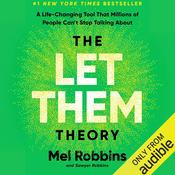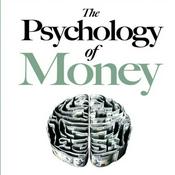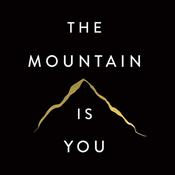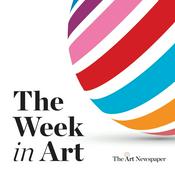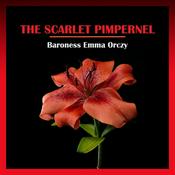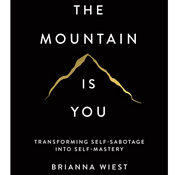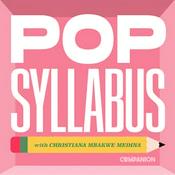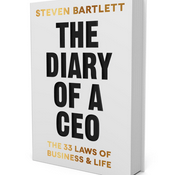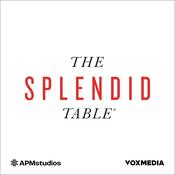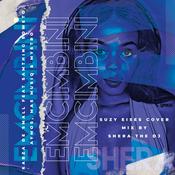1010 episodes
- Dr. Lucy Donkin’s Standing on Holy Ground in the Middle Ages (Cornell University Press, 2022) illuminates how the floor surface shaped the ways in which people in Medieval Western Europe and beyond experienced sacred spaces.
The ground beneath our feet plays a crucial, yet often overlooked, role in our relationship with the environments we inhabit and the spaces with which we interact. “The ground beneath our feet goes unnoticed for the most part. Yet it guides our steps and shapes our identity in many ways. We obey or disregard markings that indicate where to cross the road, stand back from the edge of the platform, or position ourselves on a sports pitch…Differencing convention in homes and places of worship remind us that our own treatment of the surface is culturally constructed."
Dr. Donkin argues that “In the Middle Ages too, the surface of the ground conveyed information to those who stood on it, prompted physical and imaginative responses, and marked out individual and groups in accordance with the values and concerns of the time. Indeed, in some respects, it played a greater role today in articulating space and identity, especially within ecclesiastical settings…. This book focuses on Medieval interaction with holy ground, within and beyond the church interior, asking how these shaped both place and people.”
By focusing on this surface as a point of encounter, Dr. Donkin positions it within a series of vertically stacked layers—the earth itself, permanent and temporary floor coverings, and the bodies of the living above ground and the dead beneath—providing new perspectives on how sacred space was defined and decorated, including the veneration of holy footprints, consecration ceremonies, and the demarcation of certain places for particular activities.
Using a wide array of visual and textual sources, Standing on Holy Ground in the Middle Ages also details ways in which interaction with this surface shaped people's identities, whether as individuals, office holders, or members of religious communities. Gestures such as trampling and prostration, the repeated employment of specific locations, and burial beneath particular people or actions used the surface to express likeness and difference. From pilgrimage sites in the Holy Land to cathedrals, abbeys, and local parish churches across the Latin West, Dr. Donkin frames the ground as a shared surface, both a feature of diverse, distant places and subject to a variety of uses over time—while also offering a model for understanding spatial relationships in other periods, regions, and contexts.
This interview was conducted by Dr. Miranda Melcher whose doctoral work focused on post-conflict military integration, understanding treaty negotiation and implementation in civil war contexts, with qualitative analysis of the Angolan and Mozambican civil wars.
Learn more about your ad choices. Visit megaphone.fm/adchoices
Support our show by becoming a premium member! https://newbooksnetwork.supportingcast.fm/art Polina Dimova, "At the Crossroads of the Senses: The Synaesthetic Metaphor Across the Arts in European Modernism" (Penn State UP, 2024)
2026/2/06 | 1h 2 mins.Inspired by Richard Wagner’s idea of the total artwork, European modernist artists began to pursue multimedia projects that mixed colors, sounds, and shapes. Dr. Polina Dimova’s At the Crossroads of the Senses: The Synaesthetic Metaphor Across the Arts in European Modernism (Penn State UP, 2024) traces this new sensory experience of synaesthesia—the physiological or figurative blending of senses—as a modernist phenomenon from its scientific description in the late nineteenth century to its prevalence in the early twentieth.
Structured around twenty theses on synaesthesia, this book explores the integral relationship between modernist art, science, and technology, tracing not only how modernist artists perceptually internalized and absorbed technology and its effects but also how they appropriated it to achieve their own aesthetic, metaphysical, and social goals. Through case studies of prominent multimodal artists—Oscar Wilde, Aubrey Beardsley, Richard Strauss, Aleksandr Scriabin, Wassily Kandinsky, František Kupka, Andrei Bely, and Rainer Maria Rilke—At the Crossroads of the Senses reveals the color-forms and color-sounds that, for these artists, laid the foundations of the world and served as the catalyst for the flourishing exchanges among the arts at the fin de siècle.
Rooted in archival research in Russia, Germany, France, and the Czech Republic, At the Crossroads of the Senses taps overlooked scientific sources to offer a fresh perspective on European modernism. Sensory studies scholars, literary critics, and art and music historians alike will welcome its many contributions, not least among them a refreshing advocacy for a kind of sensuous reading practice.
This interview was conducted by Dr. Miranda Melcher whose book focuses on post-conflict military integration, understanding treaty negotiation and implementation in civil war contexts, with qualitative analysis of the Angolan and Mozambican civil wars. You can find Miranda’s interviews on New Books with Miranda Melcher, wherever you get your podcasts.
Learn more about your ad choices. Visit megaphone.fm/adchoices
Support our show by becoming a premium member! https://newbooksnetwork.supportingcast.fm/artWisdom of the Goddess: The Divine Feminine in South Asian, Southeast Asian, and Himalayan Art
2026/2/05 | 49 mins.Hillary Langberg discusses Wisdom of the Goddess, an online exhibition she curated for the Smithsonian's National Museum of Asian Art featuring nine goddesses across Hindu and Buddhist traditions. Langberg traces her path from fieldwork at western Deccan cave temples to public humanities, and addresses the curatorial choices, pedagogical design, and theological framing involved in presenting devī traditions to diverse audiences. The conversation explores the Hindu-Buddhist interface in goddess worship, visual texts as evidence, and transmission beyond academic containers.
Learn more about your ad choices. Visit megaphone.fm/adchoices
Support our show by becoming a premium member! https://newbooksnetwork.supportingcast.fm/artDonna Stein, "The Empress and I: How an Ancient Empire Collected, Rejected and Rediscovered Modern Art" (Skira, 2020)
2026/1/26 | 46 mins.In the 1970s, American curator Donna Stein served as an art advisor to Empress Farah Diba Pahlavi, the Shahbanu of Iran. Together, Stein and Pahlavi generated an art market in Iran, as Stein encouraged Pahlavi’s patronage of the Tehran Museum of Contemporary Art. Today, the contemporary section of the Iranian National Collection―most of which continues to languish in storage―is considered one of the most significant collections of modern art outside of Europe and the United States.
The Empress and I: How an Ancient Empire Collected, Rejected and Rediscovered Modern Art (Skira, 2020) is a vivid account of Stein’s experience working on this storied intercultural initiative. In crafting her highly readable narrative, Stein cites a number of previously confidential documents, including private correspondence with artists and dealers. This text explores the relationship between two women united by their shared passion for the arts and the continued legacy of their partnership in today’s art world.
Kirstin L. Ellsworth holds a Ph.D. in the History of Art from Indiana University and is Associate Professor of Art History at California State University Dominguez Hills.
Learn more about your ad choices. Visit megaphone.fm/adchoices
Support our show by becoming a premium member! https://newbooksnetwork.supportingcast.fm/artDaisy Fancourt, "Art Cure: The Science of How the Arts Save Lives" (Cornerstone Press, 2026)
2026/1/23 | 27 mins.Is culture good for you? In Art Cure: The Science of How the Arts Save Lives (Cornerstone Press, 2026) Daisy Fancourt, a Professor of Psychobiology & Epidemiology and head of the Social Biobehavioural Research Group at University College London offers a comprehensive and compelling argument for the ways arts and culture offer health and social benefits for individuals and societies. The book offers both the evidence for the benefits of arts and culture, whilst at the same time showing how many people and places are missing out and excluded from the positive impact of engagement and experiences. A powerful call for the importance of art and culture, backed by a blend of rigorous scientific and medical evidence, as well as engaging personal stories and narratives, the book is essential reading across the arts, humanities and sciences.
Learn more about your ad choices. Visit megaphone.fm/adchoices
Support our show by becoming a premium member! https://newbooksnetwork.supportingcast.fm/art
More Arts podcasts
Trending Arts podcasts
About New Books in Art
This podcast is a channel on the New Books Network. The New Books Network is an academic audio library dedicated to public education. In each episode you will hear scholars discuss their recently published research with another expert in their field.
Discover our 150+ channels and browse our 28,000+ episodes on our website: newbooksnetwork.com
Subscribe to our free weekly Substack newsletter to get informative, engaging content straight to your inbox: https://newbooksnetwork.substack.com/
Follow us on Instagram and Bluesky to learn about more our latest interviews: @newbooksnetwork
Support our show by becoming a premium member! https://newbooksnetwork.supportingcast.fm/art
Podcast websiteListen to New Books in Art, Dish and many other podcasts from around the world with the radio.net app
Get the free radio.net app
- Stations and podcasts to bookmark
- Stream via Wi-Fi or Bluetooth
- Supports Carplay & Android Auto
- Many other app features
Get the free radio.net app
- Stations and podcasts to bookmark
- Stream via Wi-Fi or Bluetooth
- Supports Carplay & Android Auto
- Many other app features

New Books in Art
Scan code,
download the app,
start listening.
download the app,
start listening.


